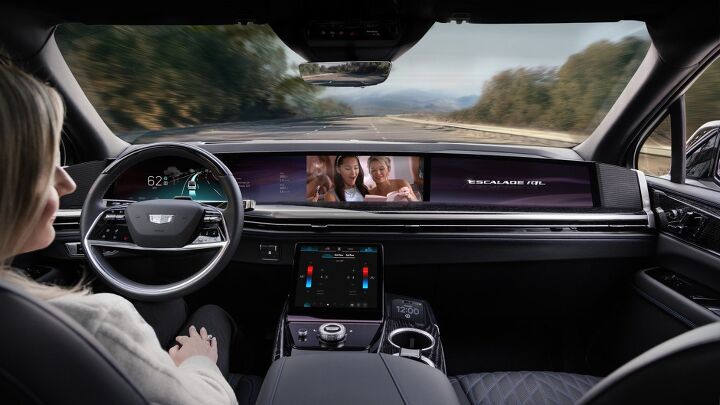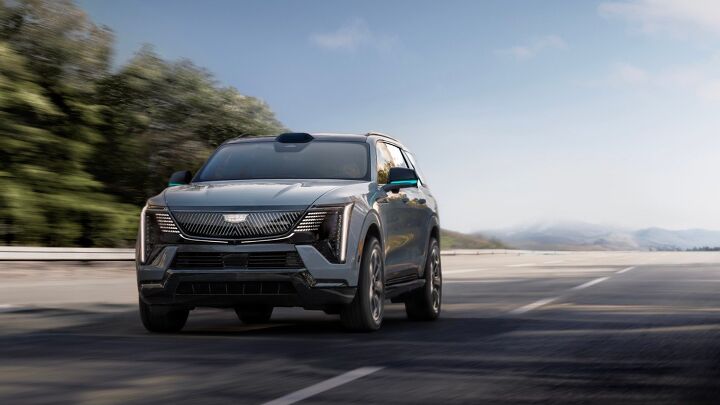
General Motors will take another step toward automated driving with a new version of its Super Cruise system—one that will allow drivers to look away from the road entirely. The so-called “eyes-off” mode is expected to debut in the 2028 Cadillac Escalade IQ, this will be GM’s first attempt at delivering Level 3 autonomy.
Unlike the current Level 2 version of Super Cruise, which allows hands-free operation only when the driver’s eyes remain on the road, the new system will grant drivers the ability to divert their attention—to a phone, a movie playing on the center screen, or a conversation—while the vehicle handles the driving duties.
I am Jack’s convulsive shuddering.
GM says the technology combines cameras, radar, and lidar sensors to achieve the precision required for this level of automation.

At its GM Forward media event in New York, the automaker demonstrated an early prototype of the system on a modified Escalade IQL equipped with a roof-mounted sensor array and turquoise lights integrated into the mirrors and bumpers. GM says those lights will signal when the SUV is operating in eyes-off mode, providing a visual cue to surrounding drivers. Once it launches on the Escalade IQ, the new version will eventually reach other models, though GM has not disclosed which vehicles or markets will get it first.
Initially, the eyes-off system will be restricted to specific highways. GM hasn’t confirmed where it will be available, but the current hands-free Super Cruise operates across a mapped network of roughly 750,000 miles of compatible North American roads. GM did say it has already mapped over 600,000 miles of roads in North America that will support the Level 3 system.
The automaker says its customers have driven 700 million miles with Super Cruise without a single reported crash while the system was active. Validation frameworks ported over from GM’s now-defunct Cruise division add more than five million fully driverless miles of experience— including that one time.

GM also announced that beginning in 2026, Google’s Gemini AI will be integrated into its infotainment systems, giving drivers the ability to speak naturally to their cars—asking questions, getting directions, or managing vehicle settings without the robotic back-and-forth typical of voice assistants.
With access to vehicle data and OnStar’s connected services, Gemini can explain how one-pedal driving works in an EV, identify potential maintenance issues, or suggest nearby restaurants based on driver preferences. All of this, GM insists, will only occur with the driver’s consent— GM has a stellar track record of digital privacy for those of you keeping track at home.
GM said it plans to replace Google’s platform with its own proprietary conversational AI. The in-house system will be trained specifically for GM vehicles and fine-tuned to each car’s hardware, software, and the driver’s habits. That adaptive capability will be supported by a major computing overhaul set to debut in 2028—GM’s next-generation electrical architecture will consolidate dozens of individual control modules into a single high-speed core.
I’ll just keep my stupid 2007 Mercury Grand Marquis, thank you very much.
[Images: General Motors]
Become a TTAC insider. Get the latest news, features, TTAC takes, and everything else that gets to the truth about cars first by subscribing to our newsletter.


